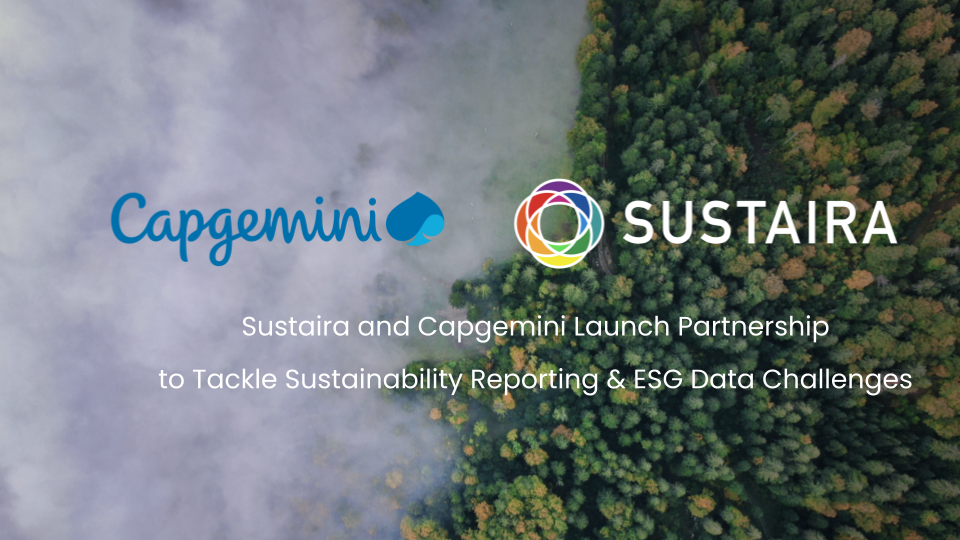Capgemini Collaborates to Promote Sustainable General AI Adoption
Published on 3/13/2025, 3:45:36 PM
Global consultancy giant, Capgemini, has joined forces with the prestigious French institution, École Normale Supérieure (ENS-PSL) and the progressive AI & Society Institute to craft innovative, shared methodologies that will propel sustainable adoption of General Artificial Intelligence (Gen AI). Intriguingly, while AI has been hailed for redefining global industries and generating beneficial opportunities, it is its own sustainability profile that's now sparking concerns.
To comprehend the depth of this issue, consider this uncanny truth: AI has an environmental conundrum. Rapid technology adoption, specifically Gen AI, has unlocked a world of opportunities across varied sectors. Simultaneously, however, the mounting computational demand required to sustain new AI applications is leading to increased water and energy consumption, not to mention a steadily rising carbon footprint.
In light of these environmental implications, the ENS-PSL, together with AI & Society Institute and Capgemini, have initiated a global observatory. This observatory's substantial goal? To construct a potent, shared methodology that will pilot sustainable AI progress.
Unveiling the reason behind the new collaboration, Etienne Grass, Managing Director of Capgemini Invent France, said, "With corporations keen to incorporate efficiency gains, huge AI models are creating not just massive environmental footprints but equally substantial costs." Emphasising the need for coherence and clarity in methodologies, Grass also recognised the importance of collaborating with every participant in the AI value chain.
Adding to the mix of concerns is a recent research paper from Capgemini that spotlighted the high environmental costs of operational Gen AI and agentic AI, specifically in terms of power and water usage, in addition to the production and disposal of hardware equipment.




One aspect requiring immediate attention is the large-scale infrastructure dusting up to support AI's growth. This includes developing data centres, telecommunication networks, servers, and end-user devices, all of which contribute significantly to issues such as resource depletion, greenhouse gas emissions, rising water usage, and electronic waste.
Gen AI models, renowned for their size, are particularly impactful. Research from Capgemini indicates these models can consume up to an astonishing 4,600 times more energy than their traditional counterparts, potentially driving up greenhouse gas emissions in nearly half the organisations involved in the research.
In this context, the newly established observatory will work to evaluate and mitigate AI's environmental impacts. Expect this venture to deliver an effective methodology that encourages every stage of AI’s lifecycle, from training to adjustment, inference, and even its end-of-life.




Anne Bouverot, Chairwoman of the Board of Directors and ENS-PSL, shared her perspective, asserting, "We firmly believe that research and action must go hand in hand to effect positive change in our societies."
The observatory also plans to develop a unique, open-access database where AI developers and researchers can share data regarding their models' environmental performances. This will foster much-needed transparency and collaboration among businesses and research groups, thereby promoting more sustainable AI practices.
In summarising the vision, Marc Mézard, Chairman of the AI & Society Institute stated, "This Observatory is the bridge between [research and action] and forms part of our pledge to offer informed solutions to public and private institutions on artificial intelligence and its impact."




As the world navigates towards a greener future, efforts like Capgemini's global observatory on AI and sustainability represent critical initiatives. Balancing the scales between AI's potential and its environmental impact is a complex task, but with strategic planning, robust methodologies, and global cooperation, the sustainability of AI remains a achieveable goal.
Related Articles

Mexican Billionaire Ricardo Salinas Allocates 70% of Portfolio to Bitcoin
3/13/2025, 4:19:44 PM
Bitcoin 2025 Conference to Relaunch Legal Education Program
3/13/2025, 4:19:02 PM
Google's Gemini Flash 2.0 Enhances AI Image Generation with Speed and Conversational Advancements
3/13/2025, 4:04:07 PM
